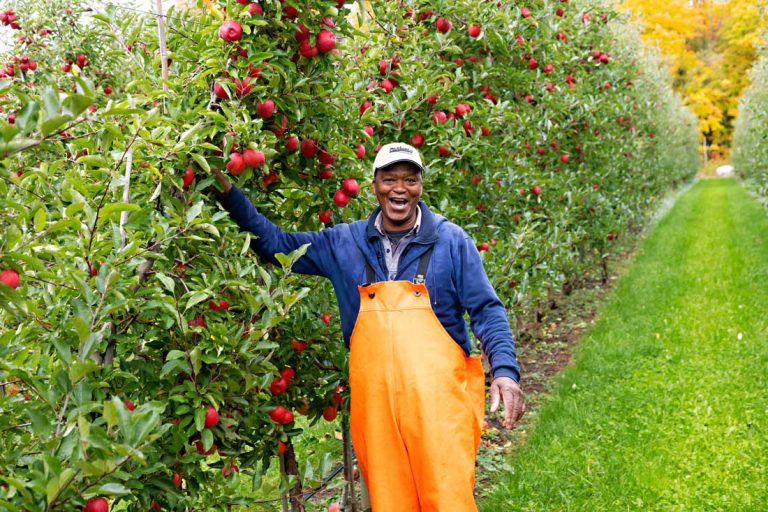There have been many government announcements lately regarding changes to the federal Temporary Foreign Worker (TFW) program. Some of this is undoubtedly linked to the dramatic increase in the use of TFWs by some sectors of the Canadian economy, drawing both criticism and scrutiny as a result.
For agriculture, employing seasonal and international farm workers is not new. In fact, Ontario fruit and vegetable growers welcomed the first Jamaican workers to the province in 1966 to address what even then was a growing shortage of farm workers.
Today, Ontario growers employ approximately 20,000 seasonal and temporary foreign workers annually who come to this province legally through the long-running Seasonal Agricultural Worker Program (SAWP) for horticulture and the Temporary Foreign Worker (TFW) program’s agricultural stream.
Many critics still use outdated and misleading language when discussing these programs, ignoring the significant new protections and safeguards that have been added in recent years to address legitimate concerns. A very recent and high profile case is the UN Special Rapporteur on Contemporary Forms of Slavery, whose extreme and inflammatory language to describe the TFW program is particularly troubling to farmers.
Agriculture arguably, perhaps more than any other sector of the economy, knows how essential seasonal and temporary foreign workers are – and that without them, we wouldn’t be able to grow most of the labour-intensive fruit and vegetable crops that Canadians love and that are an important part of our national food security.
That’s why there has been active change in the sector, driven by both government and industry, to address problems and provide new protections and safeguards for workers.
In fact, the SAWP has an annual review mechanism where the workers’ home countries can address issues and program shortcomings to the Canadian government and in some cases directly to farm employers. These annual negotiations ensure that the SAWP remains current and reflects Canada’s and the workers’ home countries’ values and interests.
Ontario’s horticulture industry has also been empowering TFWs in its sector to document their inspiring stories through the More than a Migrant Worker initiative for the past several years so that their voices are also heard in the ongoing public discourse around TFWs.
Among the biggest changes to the program has been the introduction of open work permits for vulnerable workers that started in 2019 and lets those workers freely look for work with any other employer in Canada. This complements existing mobility for workers, including being able to apply for a new work permit while they are already working in the province. SAWP workers can also request a transfer to a different approved employer by their country’s liaison office without having to go through the process of applying for a new work permit.
Starting in 2024, Ontario is also changing how it compensates injured workers through the Workplace Safety and Insurance Board, and new federal rules introduced in 2022 provide additional protections from retribution and reprisals for workers who come forward regarding unsatisfactory working conditions.
Workers needing support have a variety of options, including a toll-free 24-hour federal government hotline that was introduced in 2021 and in the case of SAWP employees, liaison officers from their home countries who can help. Also in 2021, the federal government committed almost $50 million to fund worker advocacy and support organizations to ensure workers are aware of their rights and can access appropriate protections.
And earlier this year, the Senate Committee on Social Affairs, Science and Technology released a report that included six recommendations it believes could improve Canada’s TFW programs. Farm employers have also been calling for many of these to strengthen and streamline the program for workers and employers.
These recent changes are all in direct response to challenges identified with these programs by workers, advocacy organizations and employers. Although we recognize that there is always more than can be done to ensure workers have a safe and positive experience working here, the agriculture sector is justifiably proud of the many positive changes that have already been made and of our decades-old commitments to continuous improvement of our programs.
At the same time, we’re participating in ongoing improvement efforts welcome the opportunity to be an active participant in these processes.
Bill George is a Niagara Region grape grower and Chair of the Labour Committee at the Ontario Fruit and Vegetable Growers’ Association. The OFVGA is the voice of Ontario’s fruit and vegetable growers on issues affecting the horticulture sector.


